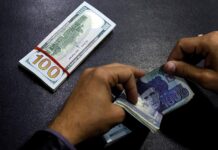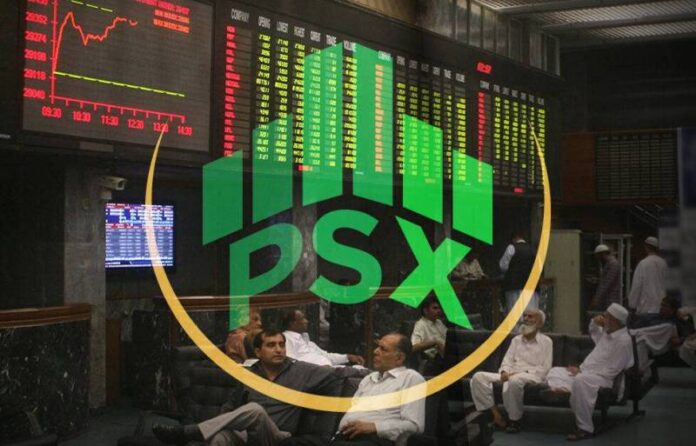The Pakistan Stock Exchange (PSX) witnessed widespread profit-taking on Monday, with the benchmark KSE-100 Index falling more than 1,500 points during intraday trading.
According to the PSX website, the market opened on a negative note and the KSE-100 shed 1,555.44 points as of 09:41 am, falling to 167,434.63 points.
Selling pressure was seen across major sectors, including oil and gas exploration companies, oil marketing firms, power generation, banks, cement and auto assemblers. Heavily weighted stocks such as ARL, HUBCO, MARI, OGDC, PPL, POL, PSO, SSGC, SNGP, MCB, MEBL, and UBL traded in negative territory.
As of 12:35 pm, the KSE-100 was hovering at 167,671.38 level, down by 1318.69 points or 0.78% from the previous close of 168,990.07 mark.
In a notable development, Pakistan recorded one of the fastest declines in sovereign default risk globally, according to a recent report by Bloomberg, now ranking second worldwide after Türkiye.
As per reports, Pakistan and the International Monetary Fund (IMF) are preparing to adjust the fiscal targets for the current financial year following updated assessments of losses from recent flash floods, which have been estimated at Rs650 billion.
The revisions are likely to affect the Federal Board of Revenue’s (FBR) tax collection and non-tax revenue targets as well as macroeconomic projections under the $7 billion Extended Fund Facility (EFF) and Resilience Sustainability Facility (RSF).
Today’s bearish trend at the PSX follows a strong performance last week, when the KSE-100 Index closed at an all-time high of 168,990.06 points, marking a 4.1% week-on-week increase. Brokerage firms noted that this was the best nine-month performance since 2009, supported by investor optimism, sectoral strength, and improving macroeconomic indicators.
Globally, Japanese stocks surged over 4% to a record high, with the Nikkei reaching 47,734.04 in early trading after Sanae Takaichi was elected leader of the ruling Liberal Democratic Party, positioning her to become Japan’s first female prime minister. The yen declined on expectations of fiscal stimulus under the new leadership.
Other major Asian markets remained closed for holidays, including mainland China, South Korea, and Taiwan. Hong Kong’s Hang Seng fell 0.3%, while Australia’s benchmark eased 0.1% amid thin trading due to state holidays. In the United States, S&P 500 futures edged 0.2% higher following Friday’s record close.
























